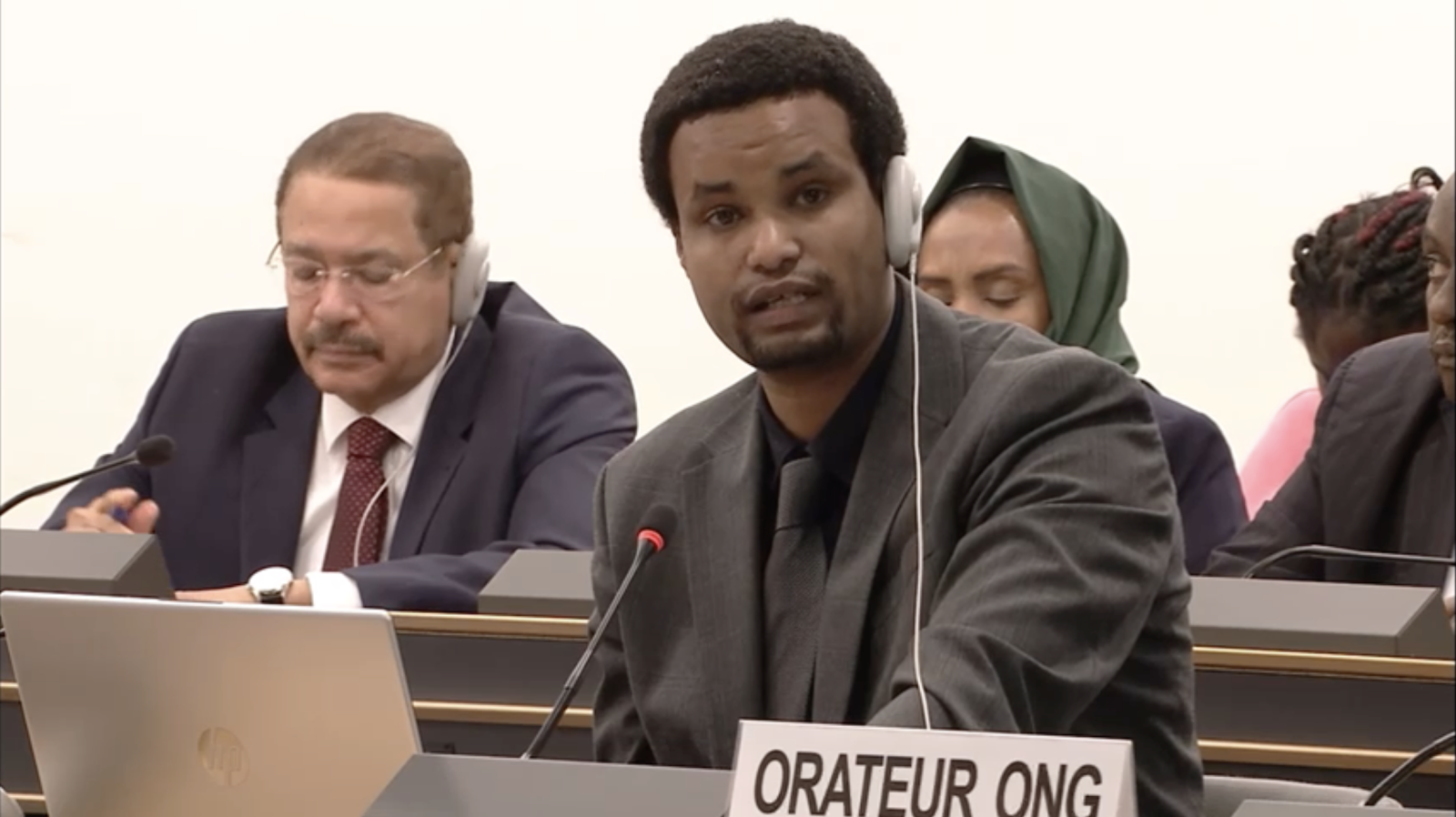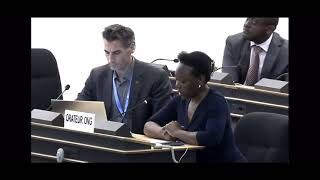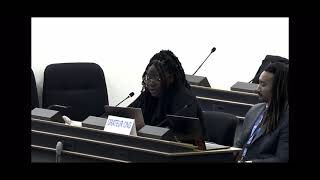22 August: International Day Commemorating the Victims of Acts of Violence Based on Religion or Belief
By Arwa Akbar / GICJ
What is International Day Commemorating the Victims of Acts of Violence Based on Religion or Belief?
International Day Commemorating the Victims of Acts of Violence Based on Religion or Belief aims to raise awareness of victims from religious minorities and communities who have routinely faced discrimination, violence and acts of terrorism due to religious intolerance [1].
On 3 June 2019, following the adoption of Resolution A/RES/73/296, which affirmed the sacrosanct duty of Member States to uphold and protect the basic human rights of their citizens. The International Day was established as a necessary measure to promote awareness towards victims of these violations. The resolution seeks to promote essential freedoms which are mutually reinforcing, thereby contributing to eliminating all forms of ‘intolerance and of discrimination based on religion or belief,’ [2].
The root of violence based on religion or belief around the world
In his 2023 message to the international community, Secretary-General António Guterres stated: “Faith and belief should never attract violence,” [3]. Indeed, it is antithetical to the very foundations of religion to incite violence. Unfortunately, violence targeting religious groups and communities remains widespread across the world, often used by individuals for political gain and to construct a false veil of superiority.
A prominent tool employed by intolerant individuals is hate speech, defined as “offensive discourse targeting a group or an individual based on inherent characteristics (such as race, religion or gender) and that may threaten social peace,” [4]. Such discourse serves to normalise warped views that promote harmful and false notions. The perceived inferiority of targeted groups is used to justify prejudicial treatment based on religious intolerance.
When a State fails to hold individuals accountable for hate speech, discrimination spreads. A culture of impunity floods into the environment, allowing for hatred to flourish, divide communities, and incite violence. Atrocities such as genocide and war crimes are derivative of acts of violence based on religion or belief [5]. It is therefore paramount to quench sentiments that provoke individuals towards such malice.
UN Special Rapporteur Nazila Ghanea, in her 2025 report entitled “Freedom of Religion or Belief and the Prohibition of Torture and Other Cruel, Inhuman or Degrading Treatment or Punishment,” noted that reports of cases against individuals based on religion or belief that describe human rights violations are increasing.
A case of violence based on religion or belief
In January 2019, four UN human rights experts submitted details on 15 of the 59 cases of extrajudicial killings of individuals under police custody in Uttar Pradesh, India. The experts were alarmed by these reports, received since March 2017, acknowledging a troubling pattern, with the victims in the 15 documented cases predominantly belonging to India’s Muslim community [7].
The violence mirrors the hate speech in the country towards minorities that has increased by 74% in 2024 [8]. The ruling party under Prime Minister Modi, Bharatiya Janata Party (BJP), is underpinned by a Hindu nationalist ideology known as Hindutva. This is the fundamental belief that Indian national identity is intrinsically Hindu, leading to hateful rhetoric against the country’s minorities who do not share this religion [9]. They are often criticised as it functions as an ethnonationalist power that actively discriminates against and marginalises its Muslim citizens. Thus, it creates a hostile environment in which Indian Muslims are persecuted based on religion and belief.
What is the UN doing to prevent acts of violence based on religion or belief?
The Special Rapporteur on freedom of religion or belief was established by the UN Human Rights Council as an independent expert to recognise emerging and existing impediments to individuals fully benefiting from the fundamental right to freedom of religion or belief. Once identified, experts are tasked with recognising and elucidating recommendations to combat these obstacles [10].
In its ‘Plan of Action for Religious Leaders and Actors to Prevent Incitement to Violence that Could Lead to Atrocity Crimes,’ the UN emphasised the significance of dialogue and education in promoting progressive pathways towards confronting hate speech and propaganda that catalyse environments of hate and hostility [11]. This plan aims to encourage religious leaders to use their influence in civil society to mitigate the emergence of hateful rhetoric fuelled by religious intolerance.
Under the Human Rights Council and the General Assembly, various resolutions aimed at confronting violence, discrimination and intolerance based on religion have been adopted. Notably, resolution 79/180, which calls upon Member States to implement a series of reforms, including but not limited to increasing international cooperation towards combating the issue, to have respective mechanisms that aim to identify and tackle religiously mediated tensions and to promote dialogue within communities that discuss the causes of discrimination [12].
GICJ’s stance
Geneva International Centre for Justice (GICJ) condemns all forms of intolerance and discrimination, and particularly denounces violence based on religion. Member States must renew their social contract with their citizens and ensure the protection of human rights and civil liberties, without interfering in the personal sphere of their citizens’ lives.
GICJ echoes the calls of UN experts to reinforce the absolute rejection of all forms of exclusion and hatred based on religious belief. Religion must never be weaponised or used to justify aggression. GICJ further calls for international solidarity, emphasising that Member States must ensure all individuals can enjoy fundamental human rights regardless of religion or belief.
#GenevaInternationalCentreforJustice #GICJ #22August #UnitedNations #UN #VictimsofActsofViolenceBasedonReligionorBelief
Sources
[1] https://www.un.org/en/observances/religious-based-violence-victims-day
[2] https://docs.un.org/en/A/RES/73/296
[3]https://www.un.org/fr/genocideprevention/documents/Plan_of_Action_Religious_Prevent_Incite.pdf
[4]https://www.un.org/en/hate-speech/understanding-hate-speech/what-is-hate-speech
[5]https://www.un.org/en/genocideprevention/documents/Plan%20of%20Action%20Advanced%20Copy.pdf
[6]https://docs.un.org/en/A/HRC/58/49
[7]https://www.ohchr.org/en/press-releases/2019/01/india-un-experts-alarmed-alleged-police-killings-uttar-pradesh
[8]https://www.bbc.com/news/articles/cpwx9942x72o
[9]https://www.theguardian.com/world/2022/sep/20/what-is-hindu-nationalism-and-who-are-the-rss
[10]https://www.ohchr.org/en/special-procedures/sr-religion-or-belief
[11]https://www.un.org/fr/genocideprevention/documents/Plan_of_Action_Religious_Prevent_Incite.pdf
[12]https://www.ohchr.org/en/minorities/combating-intolerance-against-persons-based-religion-or-belief







